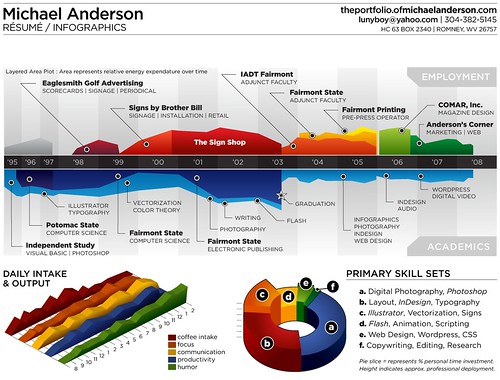The Resume - Then & Now
The following is an excerpt from the job-hunting guide, “The Seven Keys to Job Hunting Success” published in the early nineties by Al Bratland & Jeff Beardsley. As I looked over this guide, I was amazed at how the key points they were trying to get across to anyone in the workforce, not just candidates, are often dismissed or overlooked in today’s environment. I will be updating their guide for today’s market. Even with the sheer volume of resume writing and job hunting tips, tricks, and manuals out there, one can’t help but notice the timelessness of their insights into the job search process - especially in today’s climate of constant technological evolution - visual resumes personal branding, social media, and the like - the “soft skills” in landing a position are often overlooked.
Here are their insights (THEN), with some notes added on my part (NOW):
THEN:
The #1 Reason for potential interviews being missed and potential job offers being lost is the resume!
Your resume is one of the most important documents you own. Birth and marriage certificates are important. Certainly your educational degrees are significant. However, all of these are documents, created once to be unchanged through time, exist only to prove certain events took place.
Your resume, on the other hand, is an ongoing chronology of your working life. It is a road map pointing out where you have been, stops you have made, the objective of your journey and the route you choose to follow.
Your resume is a living document – an evolving and growing record of each success and failure you have encountered. It is your statement of what you can do and the yardstick by which your new employer will measure you in your new job.
Considering the importance of your resume, do not let it get stale. If you don’t already have it up-to-date, update it NOW. Do not wait until your job is lost or that new opportunity shows up. Then it may be too late. Review it frequently with an eye on tomorrow.
NOW:
No one would argue today the importance of the resume (though I have heard its death knell on recruiting forums several times). What seems to be evolving is how that document will take shape:
Visual Resume found online
THEN:
Remember, your resume is one of hundreds, if not thousands, that someone has to sort through every day. The garbage can or delete key* is only two seconds away from that first glance.
NOW:
Networking, both online via social media and in person, is touted as the most valuable asset in today’s job search climate, but by no means does that mean a resume is less important. If anything, once that connection / contact / lead is made, the resume needs to shine to get through the hiring process.
*A word about the delete key: We all know the importance of keywords in a resume, if just to make it through the automated applicant tracking system and get plucked out of obscurity, a technology still in its infancy when this guide was written (god, how I remember that old OCR software from years ago). However, it seems, if following and listening to the gist of what they are saying, the keywords will naturally be a byproduct of a well-written document. (and read on for this…)
THEN (& NOW): So, how do you escape this fate and stand out from the rest? Not by being fancy, crafty, or slick, but with a straightforward format that is easy to read and shows quickly and clearly how you can help your potential new employer.
(and here is where their insight really shines)
Remember, the reason a hiring manager is looking at resumes is because she or he has a NEED:
It could be the need to:
- INCREASE – profit, satisfaction, confidence, convenience, productivity, pleasure
- IMPROVE – customer relations, employee relations, image, status, earnings
- PROTECT – investment, self, employees, property, money
- MAKE – money, satisfied customers, good impression, space
- REDUCE – risk, investment, expenses, competition, worry, trouble
- SAVE – time, money, energy
HOW DO YOU MEET THOSE NEEDS?
…If your resume addresses those needs both figuratively and quantitatively as related to your industry, IT WILL BE READ
…If your resume reveals the results of applying your skills to satisfy a need YOU WILL GET THE INTERVIEW.
... If you can show success, YOU WILL GET HIRED.
Thoughts, anyone?
Subscribe
All the recruiting news you see here, delivered straight to your inbox.
Just enter your e-mail address below
RecruitingBlogs on Twitter
Groups
-
Recruiters On LinkedIn
1801 members
-
Corporate Recruiters
316 members
-
Recruiting tips for begi…
180 members
-
The Recruiting Bar
190 members
-
Recruiting Humor
222 members
-
News from the Recruiting…
34 members
-
Contractors Recruitment
62 members
-
Recruitment Process Outs…
194 members
-
Virtual Recruiters Netwo…
619 members
-
Independent Recruiters
530 members
© 2025 All Rights Reserved
Powered by
![]()
Badges | Report an Issue | Privacy Policy | Terms of Service
About
With over 100K strong in our network, RecruitingBlogs.com is part of the RecruitingDaily.com, LLC family of Recruiting and HR communities.
Our goal is to provide information that is meaningful. Without compromise, our community comes first.
Join the Network!
RecruitingDaily.com
One Reservoir Corporate Drive
4 Research Drive – Suite 402
Shelton, CT 06484
Email us: info@recruitingdaily.com


You need to be a member of RecruitingBlogs to add comments!
Join RecruitingBlogs